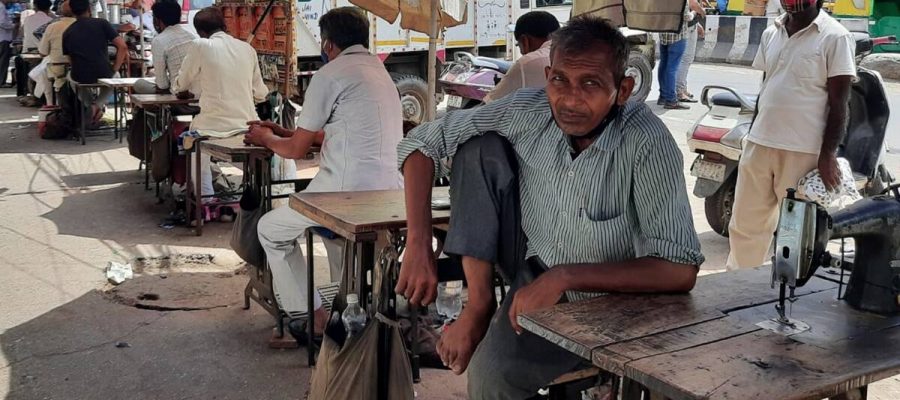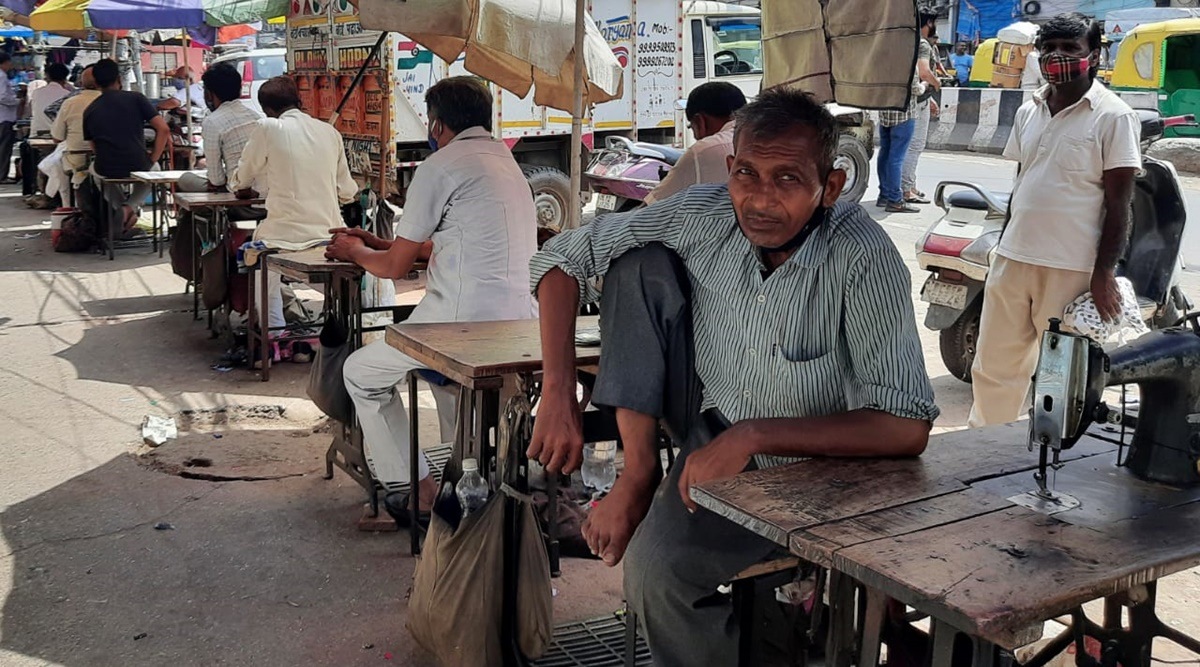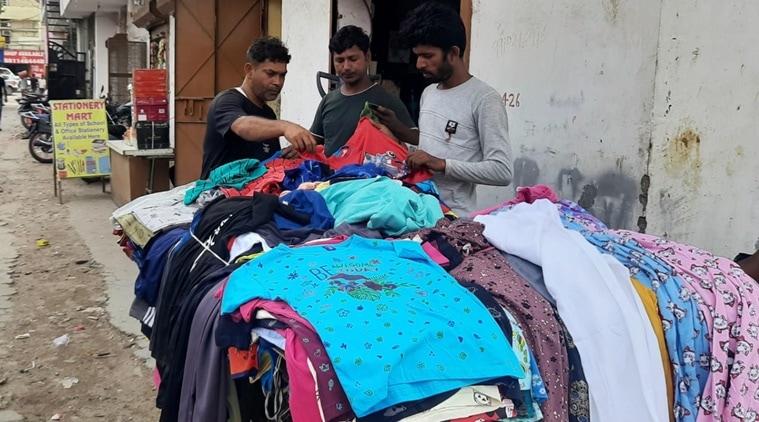Construction workers at labour chowks, tailors at Sadar Bazaar, vendors at Khanpur and domestic helps at Trilokpuri The Indian Express spoke to had one thing in common – all of them said that had they not accepted the job, someone else would have taken it.
As workers across the national capital struggle to get back on their feet after the Covid lockdown, many are forced to accept work at lower rates than before. Construction workers at labour chowks, tailors at Sadar Bazaar, vendors at Khanpur and domestic helps at Trilokpuri The Indian Express spoke to had one thing in common – all of them said that had they not accepted the job, someone else would have taken it, and they would be stuck in a loop of unemployment.
Contractors and employers, they say, are aware of their desperation – and use this to justify lower pay.
At 7 every morning, Sunil Thakur (36) reaches the labour chowk in Sadar Bazaar. With each hour that passes, he knows he will be paid a lower amount. There are hundreds of labourers gathered alongside him. Every time a contractor gets out of his vehicle, at least 20 workers surround him.
Later in the day, many are left behind. Sunil said, “Our normal rate is around Rs 500 a day for ‘beldari’. As time passes, contractors know we will take up work at any rate because we are desperate and do not want to go home hungry.”
At 10.50 am on Friday, he said that even if an employer offered him Rs 350 for the job, he would take it. It was the sixth day without work, and he said the contractor would make him work till at least 9 pm despite the lower rate.
Before the first lockdown last year, Sunil said that he would find work 15 days a month and earn Rs 500 each day. Nowadays, he gets employed around four times a month and gets no more than Rs 400.
His earnings have dropped from roughly Rs 7,500 a month then to Rs 1,600 now.
Sunil stays in a rented apartment with his 13-year-old son near Ajmeri Gate. Every day, he tells him not to worry about food and concentrate on his studies. “When I return from the labour chowk at 2 pm, everyone at home knows I did not get any work.”
He has been taking loans, paying rent in installments, and surviving on ration distributed by organisations: “When the lockdown was announced, many people went home. But if I go back to my village in Madhya Pradesh, I have to go back with some savings. People will ask me what I am doing in Delhi if I cannot earn.”
At Bara Tooti Chowk in Sadar Bazaar, a dozen tailors take their place on their respective sewing machines at 8 am. The tables and stools have been fixed at the same spot for years, but this time their spirits are wavering. Every time a customer visits them, they settle to work at lower prices. If one doesn’t, customers simply move to the next tailor. This has led them to settle for lower rates overall so everybody gets some work.
A customer asks a tailor to cut a kurta-pajama from cloth and stitch it – a job that would earlier fetch him Rs 100, but now earns him Rs 70. Zahid Ali (54), one of the tailors, earns around Rs 250 per day, putting in the same hours as before when he used to earn around Rs 450. He said he pays Rs 100 to commute from his home in Bhajanpura to Sadar Bazaar, and back.
“In 2019, my daughter got married and I took a Rs 1 lakh loan. I managed to pay off half but the rest is still left and people are pressuring me for the money.” He has two sons – the elder one, aged 17, works at a cosmetics shop in Sadar Bazaar.
Most of his income comes from small tasks like cutting a pair of pants by a few inches. “No matter how little a customer wants to pay, somebody will agree to do it. We cannot blame customers either – they do not have jobs or money themselves, so they don’t want to spend much,” he said.
The concern was echoed by cloth vendors in Khanpur. Sabir Ali (28), who used to sell clothes in a weekly market nearby, now sells them in front of a residential colony. He buys the clothes at the same rates as before but sells them for less: “If I quote a slightly higher price, nobody will buy from me.”
Earlier, he used to earn Rs 25-30 per piece, but now keeps a margin of Rs 10. He would make Rs 500 on an average every day then; now it’s around Rs 300 on good days.
And, he also has to pay his helper, Anuj Kumar (23). Anuj says his previous employer sacked him when the lockdown was announced, without paying him dues of Rs 7,500. He then started helping Sabir, who pays him as and when he makes profits. “Ration is a priority for most. People want clothes for their children but nobody wants to spend,” he said.
Lalita Chauhan (38), a domestic help in Trilokpuri, shares a similar fate. Cleaning work that used to earn Rs 2,000 a month before the first lockdown now fetches Rs 1,000. She said that she would earlier earn Rs 8,000 a month from four houses. Till April, she used to work in two houses, earning Rs 1,000 each. When she asked her employers for a higher salary, they told her they too were struggling.
She said the lower rates have been normalised because there are many people competing for the same jobs. It is only those who have been employed for many years who are able to retain work, she said.
Ever since the lockdown this year, she lost these two jobs as well. “One of my employers asked me to stop coming till I get vaccinated and the other has gone to Meerut indefinitely,” she said. Even if she does find work, she doubts she will be paid the same amount as before. The expenses, she said, are ever-increasing, and she has to take help from relatives to keep her family afloat.
Source: Read Full Article




